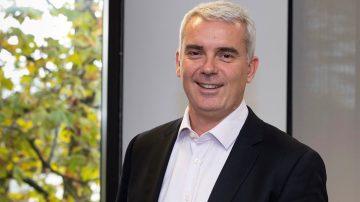Workers in the Channel Islands are less likely to leave their current employer in the next 12 months compared to workers elsewhere in the world, but a higher percentage are feeling their workloads are unmanageable compared to figures globally.
These are two of the findings from the newly launched PwC Channel Islands’ Workforce Hopes and Fears Survey 2023 in which more than 500 employees from Jersey, Guernsey and Alderney across all industries were surveyed. Those figures were then compared with the result of the wider PwC network’s global survey published mid-summer. The significant findings from the survey include the following:
- Only one in seven Channel Islands’ workers expect to leave their current employer in the next 12 months. This differs from global findings where one in four expect to leave their current job over the next year.
- Local employees are feeling strained when it comes to manageable workloads, with more than a third of respondents reporting that they often or usually find their workloads unmanageable – 14% higher than the global figure.
- Channel Islands’ workers are largely unaware of the expected impacts AI will have on their careers over the next five years, with 50% of respondents selecting: “I don’t think AI will impact my job”, and “Don’t know”.
- Personal values appear aligned with organisational values locally, with 81% of respondents feeling their actions and behaviours at work are aligned with their company’s values and direction – 21% higher than globally.
- Over half of Channel Islands’ employees believe their employer has a responsibility to take action to address climate change, and of that half, 40% don’t think their employer is doing enough in this regard.
Commenting on the results of the survey and implications for business, Leyla Yildirim (pictured), Chief Strategy Officer, PwC Channel Islands, said: “Channel Islands workers appear to be committing to their current employers for the foreseeable future. Whilst that’s welcome news for local businesses, we also find that employees are bearing the brunt of ongoing skills shortages, having to take on extra responsibilities beyond their job description and seeing their workloads increase. So organisations taking that loyalty for granted do so at their peril.
“The need to have a compelling employee value proposition to keep hold of good staff and invest in their wellbeing to grow our economy, has never been more important.
“The lack of awareness about the potential impact of AI on local jobs is particularly concerning, and the onus must be on employers to invest now in upskilling staff for the future world of work or we risk being left behind.”

The local survey findings confirm that employees only recently entering the Channel Islands’ workforce are adapting to new ways of working, but it has also revealed the different thinking that is prevalent between the generations. A larger share of younger generations selected statements indicating that there are benefits and positive impacts with regards to AI than the older generations. Specifically, 45% of Gen Z and Millennials indicated that they believe that AI will help to increase productivity and efficiency at work in the next five years, versus 22% of respondents from Gen X and older generations.
Sarah Hollingsworth, Workforce Lead at PwC Channel Islands, added: “Technology brings about opportunities, such as the use of AI to become more productive, efficient and to create excitement and value-add in otherwise repetitive job roles. Employees have the chance to contribute to organisational growth, however in order to do so, a culture which promotes and embraces transformation is essential.”
Empowering experienced employees, who understand the business they work in and boast critical human skills, by giving them technological know-how and permission to increase their productivity through innovation, may present a lifeline for organisations who worry they lack the talent to keep pace in a digital world.
Leyla Yildirim concluded: “If local firms want to deliver growth and transformation in a world of exponential innovation and technological disruption, business leaders must continuously evaluate the skills they need, their approach to retaining talent and the development of their existing workforce.
“It has never been more important to engage and listen to the workforce, cultivate a people-centric environment, foster innovation and support what matters most to employees and surveys such as this provide a touchstone to the thinking of employees of all ages across the industry sectors in the Channel Islands and can help employers to forge a successful strategy.
“Business leaders must recognise the value of their existing workforce’s human skills, their values and needs, and the potential that can be realised by arming employees with the knowledge and permission to innovate with increasingly powerful yet intuitive technologies, and then work hard to retain those people by creating a rewarding, enriching career path.”
To view more details of the PwC Channel Islands Workforce Hopes and Fears survey findings so far released, please visit here.














